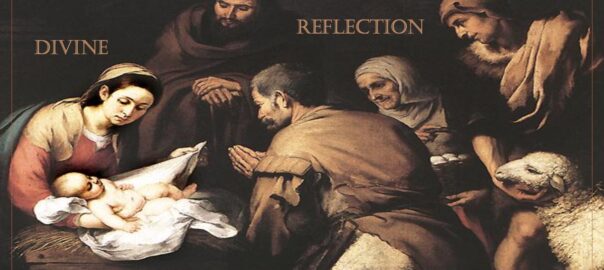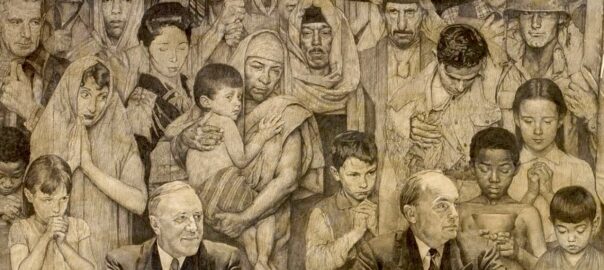
Faithful Christians and thoughtful spiritual seekers are rightly in awe of the truth of the Incarnation: in Jesus of Nazareth, God forever becomes human. This is what billions celebrate each year: the Savior of the world comes to us in the innocence and vulnerability of a baby.
Jesus Christ was born…to die. His human growth, adult work as a carpenter, and Messianic public ministry all matter as he unveils the divine life of a human being and the human life of God. Jesus’s words and works – forgiving, delivering, healing and reconciling – all serve as models of life in God’s kingdom. But the most important act in this this drama is found in the Passion: Jesus voluntarily submitting himself to injustice, unspeakable agony, and a cruel death by crucifixion. This pathway had – and still has – a purpose: our salvation. In the hours of agony on Good Friday, our Lord represented all of humankind and was our mediator, our representative as he took on all our sins and sorrows, sufferings and unanswered questions. And death did not have the final word as we celebrate the Lord’s bodily resurrection on Easter morning!
The Bible offers four portraits of our Lord.
For Matthew, Jesus is forever our Immanuel – the With-Us-God (Matthew 1:22-23). And in his resurrection on Easter, we see our future on display: body and spirit transformed and assurance of our eternity in God’s presence (Matthew 28). Jesus comes with a new revelation of God’s presence, authority, and teaching, declaring God’s kingdom and demonstrating God’s grace (Matthew 5-7 and 8-9)
For Mark, Jesus is the Sovereign who demonstrates his authority through humility, and his power through serving (Mark 10:45). Everything the Lord asks of his followers he has done as a human being! Even though his followers are slow to grasp all of this, he patiently loves them and calls them to service.
For Luke, Jesus is the Savior of all humankind: Jew and Gentile, rich and poor, women and men, and everyone from every culture, ethnicity, and race that humbly calls on him for mercy (Luke 1-2; 7, 18-19, 24). Women are welcomed alongside men in Jesus’s inner circle (Luke 8).
For John, The One who is the Eternal Word made flesh (God becoming a human being in the womb of Mary), offers all who believe eternal and overflowing life (John 3:16; 10:10). The key that unlocks this is active believing – authentic trust in who he is and in what he has done through the cross and resurrection (John 20:31).
May our Christmas be filled with gratitude for grace, hope rooted in holy love, and love flowing from the fact that we love God because he first loved us.

